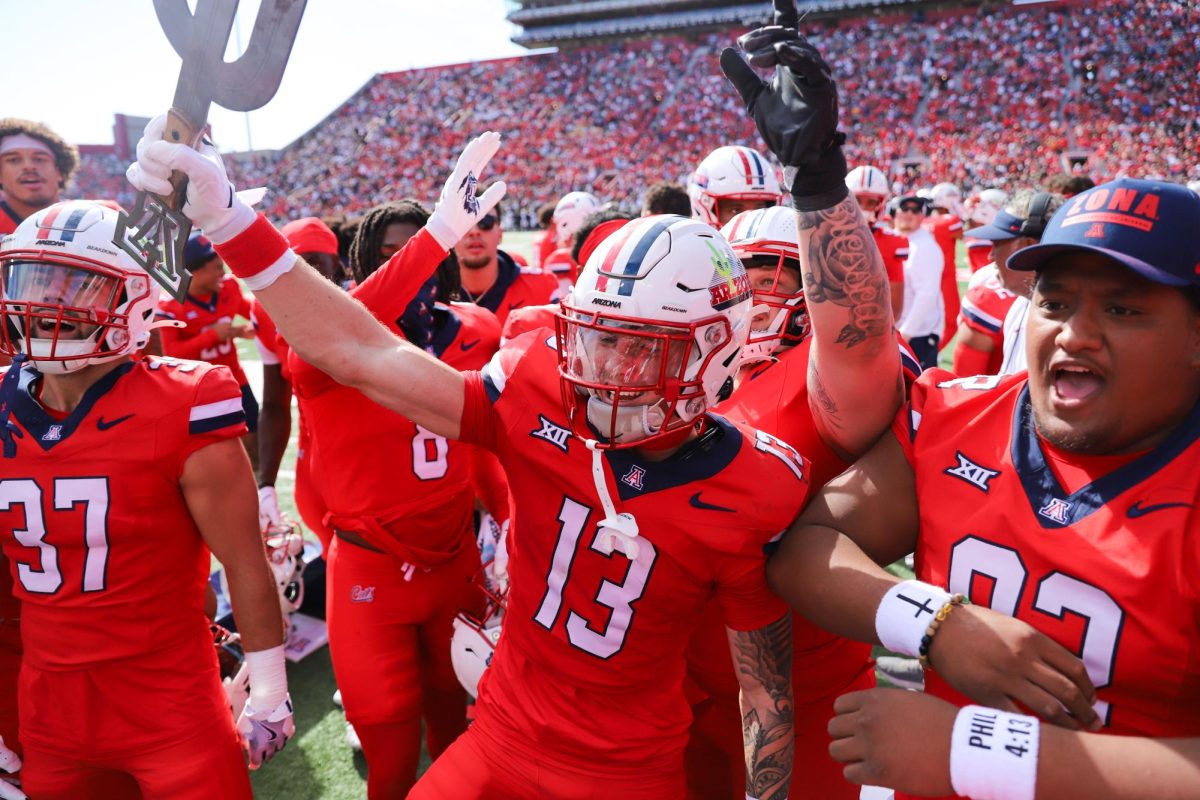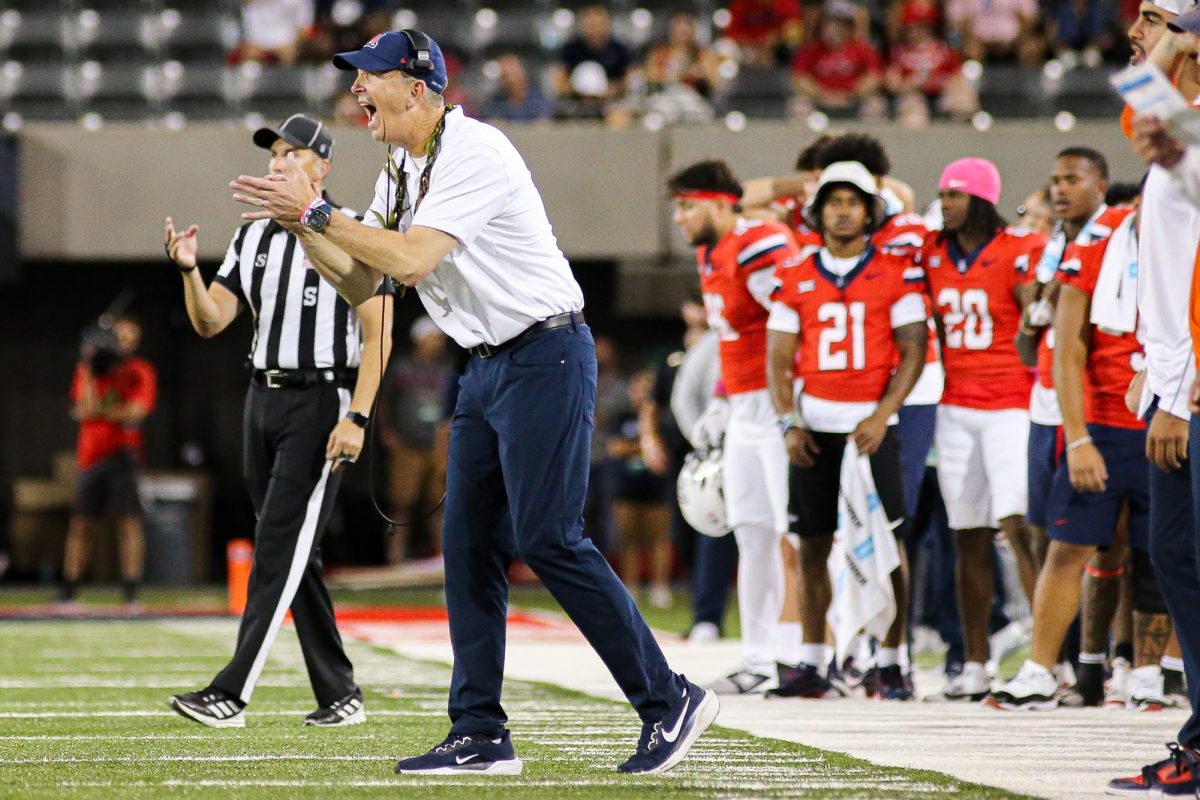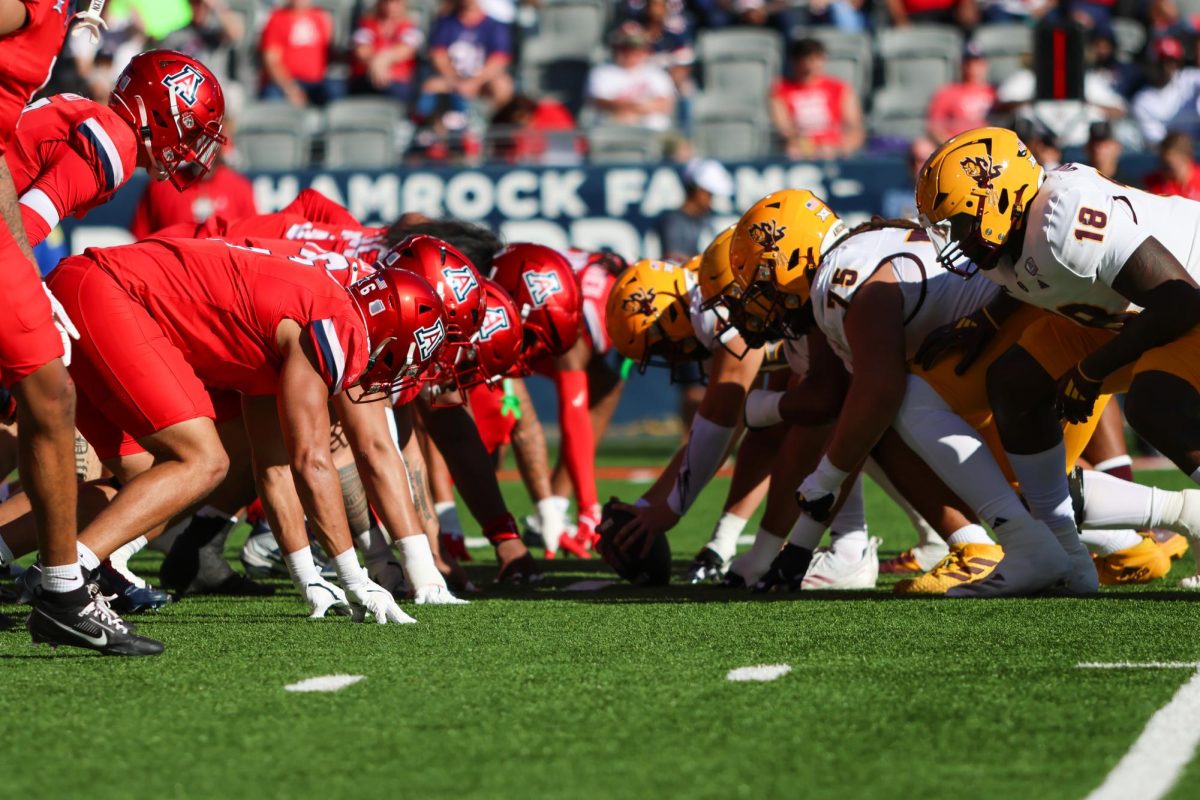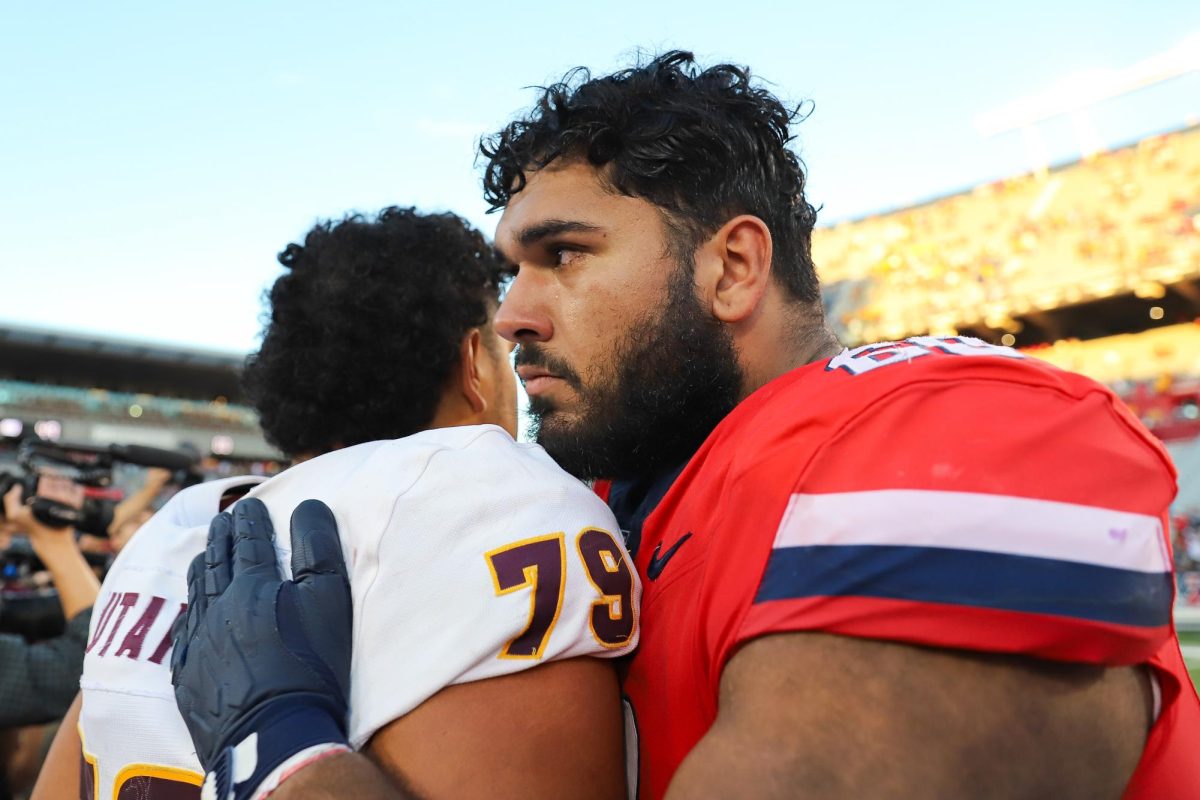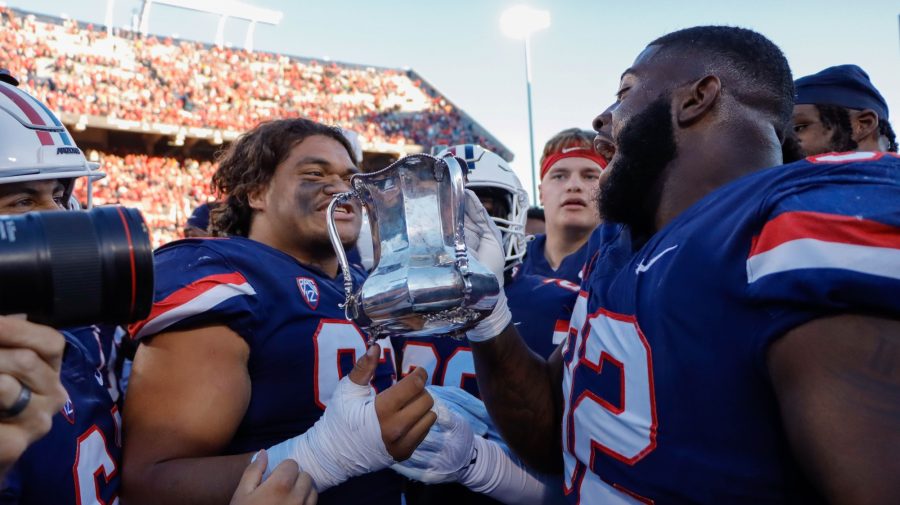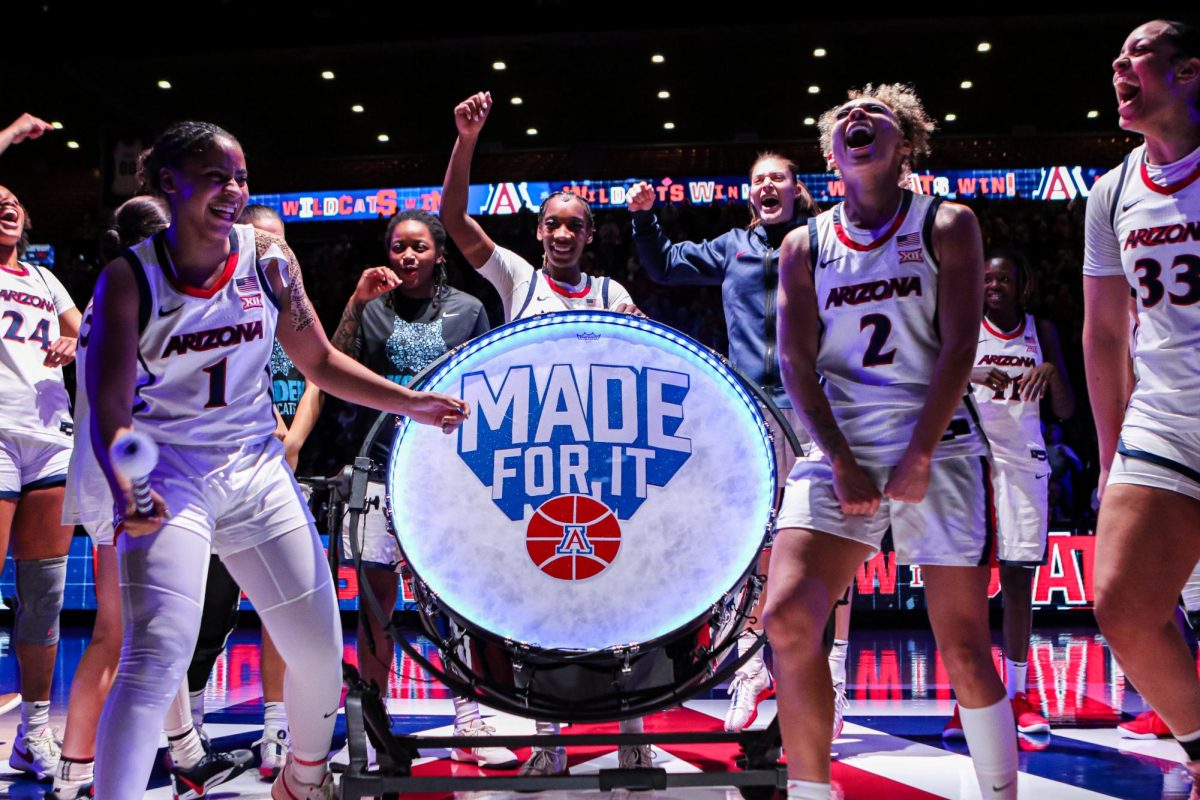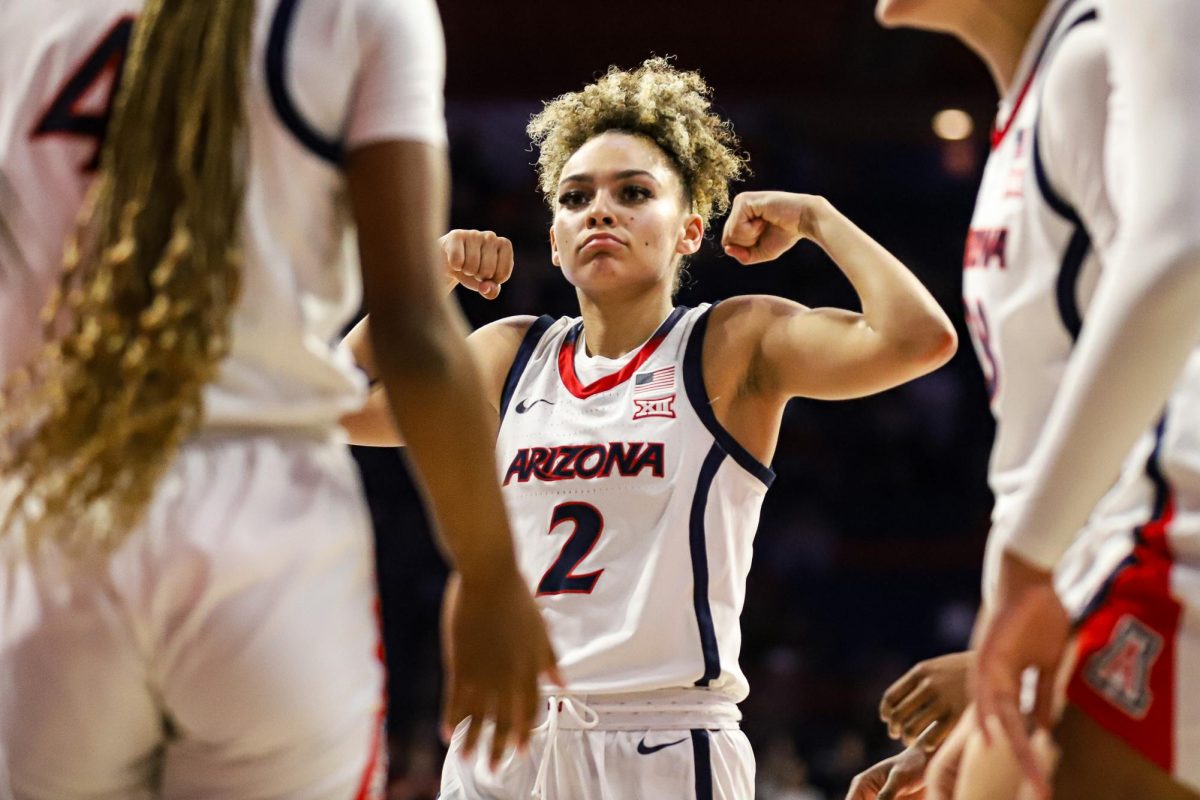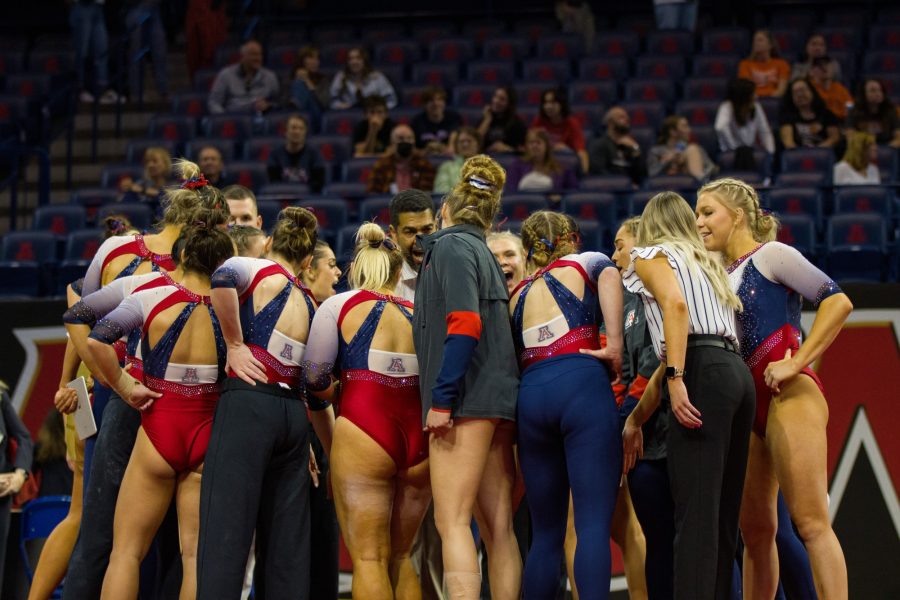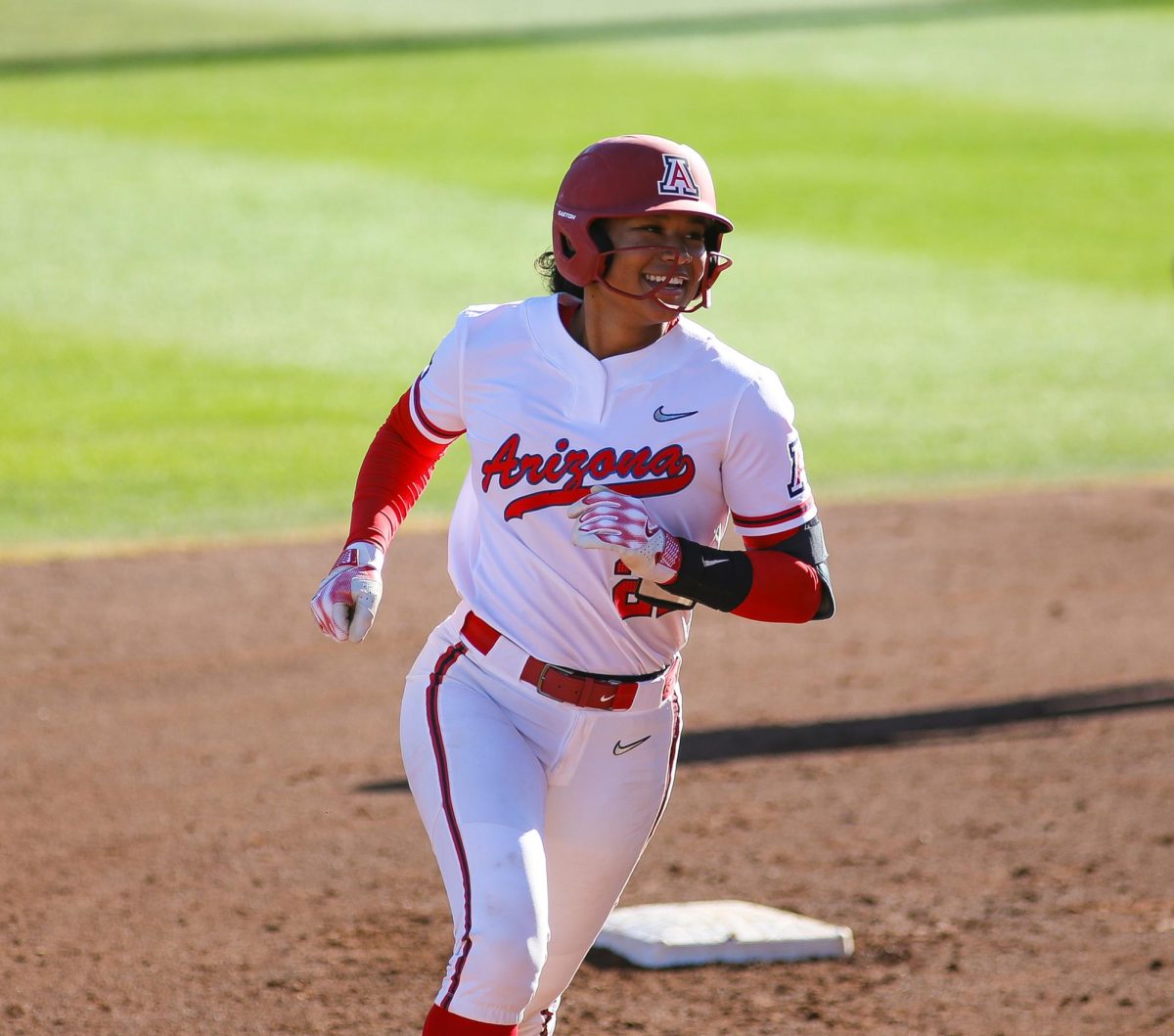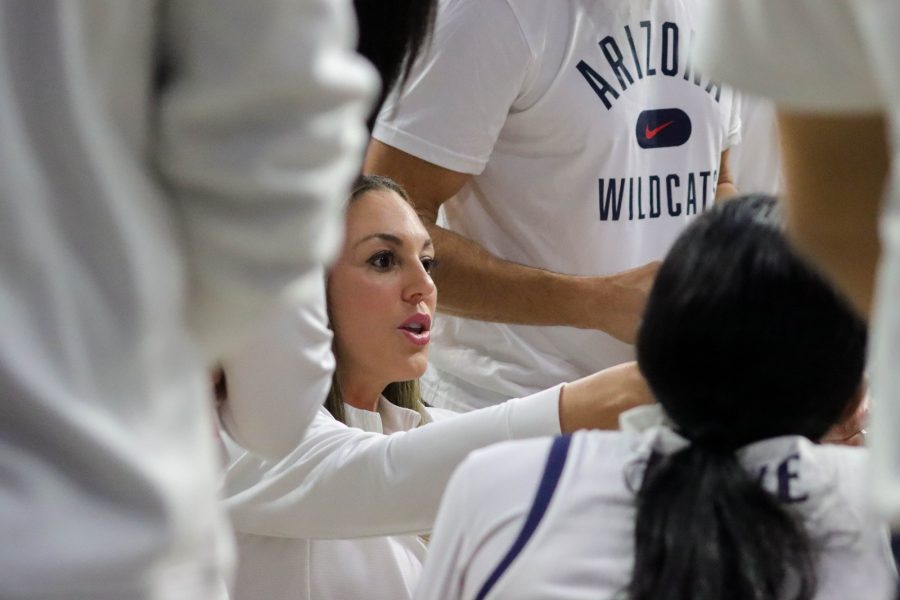The shotgun spread-option offense has taken college football by storm in recent years, with teams like Auburn and Florida winning national championships while using the system.
Most importantly, West Virginia, Michigan and now Arizona have run some variation of the offense under head coach Rich Rodriguez.
The spread-option offense, in which quarterback Matt Scott will almost never take snaps from under center and rarely huddle the team, relies on speed and matchup problems for success.
Teams who use the spread are often quick to score, and the top five scoring teams in the country a season ago (Houston, Oklahoma State, Oregon, Baylor and Boise State) all run some form of the spread.
The problem with the spread is that professional football teams still do not see it as a viable option.
“I’m biased, I think it can fit anywhere, and I think schemes are sometimes overrated from the standpoint of, ‘Does a scheme win you ballgames or lose you ballgames?’” Rodriguez said last Tuesday at Pac-12 Media Day. “I think you have to have good players executing and I think what we do is a good fit in this league and I think it does, but I think it’s a good fit in any league.”
Rodriguez cited the successes of the New England Patriots and last year’s Denver Broncos, who were led by former Florida quarterback Tim Tebow, as teams that have used a system similar to his and been able to make it to the playoffs, although NFL defenses are much faster and are going to be able to stop a “gimmicky offense,” detractors say.
“They try to use it against you in recruiting,” Rodriguez said. “The last time I watched the NFL games, 90 percent of the time they’re in shotgun. Quarterbacks are drafted because they can play, not because of what system you come out of. Maybe the new pro style is the shotgun spread.”
Rodriguez, who was unsuccessful at Michigan, his last coaching job, in part because the fanbase, boosters and athletic program were not used to seeing a spread attack, will try to change the perception of his system at Arizona, with the help of Scott.
“(Having Scott) allows us to do more of what we want to do offensively,” Rodriguez said. You don’t have to alter your playbook as much, but we won’t do the same things as (Michigan senior quarterback) Denard (Robinson) and (former West Virgina quarterback) Pat (White). A lot of things we want to do in our offense, Matt can do.”
Scott has played in a similar system to Rodriguez’s in high school, where he flourished as a runner and a passer. Scott threw for 2,479 yards and touchdowns completing 61 percent of his passes, while rushing for another 1,099 yards on 131 carries, 13 of which were scoring runs in his senior season.
“I couldn’t ask for anything more,” Scott said. “This is the offense that fits me and I think I can thrive in it.”
The offense works well for Scott and bodes well for the success of the Wildcats not because of the minutiae and details of running the system, but because of its simplicity.
“There’s not a whole lot to think about, where do I signal him, what do I tell the O-line. It’s just so much simpler,” Scott said. “It’s a lot of the same terminology; that’s why it was easy for me to pick up. When you simplify it, you can really go out and play the game without thinking too much.”




